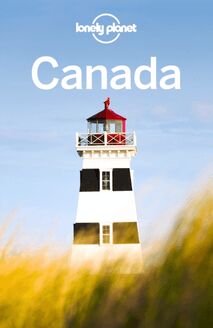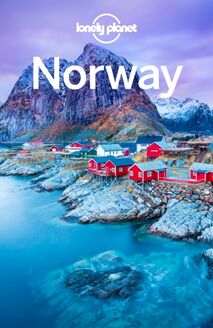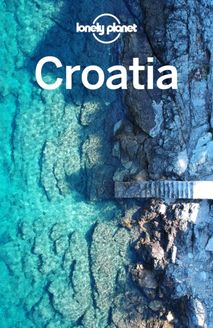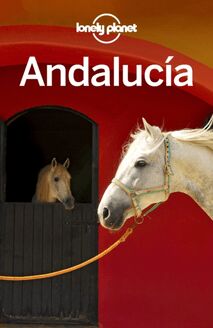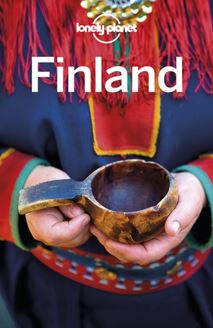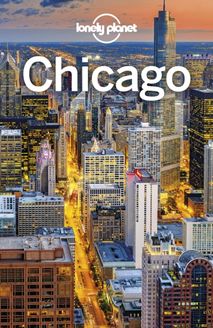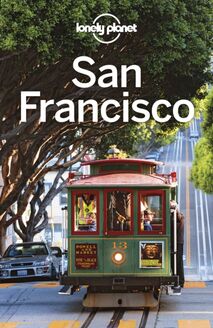Lonely Planet Budapest & Hungary , livre ebook
383
pages
English
Ebooks
2017
Vous pourrez modifier la taille du texte de cet ouvrage
Obtenez un accès à la bibliothèque pour le consulter en ligne En savoir plus
Découvre YouScribe en t'inscrivant gratuitement
Découvre YouScribe en t'inscrivant gratuitement
383
pages
English
Ebooks
2017
Vous pourrez modifier la taille du texte de cet ouvrage
Obtenez un accès à la bibliothèque pour le consulter en ligne En savoir plus
Publié par
Date de parution
01 juillet 2017
Nombre de lectures
1
EAN13
9781787010659
Langue
English
Poids de l'ouvrage
57 Mo
Lonely Planet: The world's leading travel guide publisher
Lonely Planet Budapest & Hungary is your passport to all the most relevant and up-to-date advice on what to see, what to skip, and what hidden discoveries await you. Ogle sinuous Art Nouveau architecture in Budapest, take a cruise along the blue Danube, or see the dust fly at a cowboy show -all with your trusted travel companion. Get to the heart of Hungary and begin your journey now!
Inside Lonely Planet's Budapest & Hungary Travel Guide:
- Colour maps and images throughout
- Highlights and itineraries show you the simplest way to tailor your trip to your own personal needs and interests
- Insider tips save you time and money, and help you get around like a local, avoiding crowds and trouble spots
- Essential info at your fingertips - including hours of operation, phone numbers, websites, transit tips, and prices
- Honest reviews for all budgets - including eating, sleeping, sight-seeing, going out, shopping, and hidden gems that most guidebooks miss
- Cultural insights give you a richer and more rewarding travel experience - including history, architecture, painting, folk art, music, literature, etiquette, religion, landscapes, wildlife, wine, cuisine, and more.
- Free, convenient pull-out Budapest map (included in print version), plus over 40 maps
- Useful features - including First Time Hungary, Eat & Drink Like a Local and Month by Month (annual festival calendar)
- Coverage of Budapest, the Danube Bend, Lake Balaton, Szeged, Pecs, Sopron, Southern Transdanubia, the Great Plain, Western Transdanubia, Eger, Northern Uplands, Szentendre, Visegrad, Villany, and more.
The Perfect Choice: Lonely Planet Budapest & Hungary, our most comprehensive guide to Hungary, is perfect for those planning to both explore the top sights and take the road less travelled.
About Lonely Planet: Since 1973, Lonely Planet has become the world's leading travel media company with guidebooks to every destination, an award-winning website, mobile and digital travel products, and a dedicated traveller community. Lonely Planet covers must-see spots but also enables curious travellers to get off beaten paths to understand more of the culture of the places in which they find themselves. The world awaits!
Lonely Planet guides have won the TripAdvisor Traveler's Choice Award in 2012, 2013, 2014, 2015, and 2016.
'Lonely Planet. It's on everyone's bookshelves, it's in every traveller's hands. It's on mobile phones. It's on the Internet. It's everywhere, and it's telling entire generations of people how to travel the world.' - Fairfax Media
'Lonely Planet guides are, quite simply, like no other.' - New York Times
Publié par
Date de parution
01 juillet 2017
Nombre de lectures
1
EAN13
9781787010659
Langue
English
Poids de l'ouvrage
57 Mo
Budapest & Hungary
Contents
Plan Your Trip
Welcome to Budapest & Hungary
Budapest & Hungary's Top 15
Need to Know
First Time Budapest & Hungary
If You Like
Month by Month
Itineraries
Travel with Children
Eat & Drink Like a Local
Thermal Baths & Spas
Regions at a Glance
On The Road
Budapest
Neighbourhoods at a Glance
Sights
Activities
Courses
Tours
Festivals & Events
Sleeping
Eating
Drinking & Nightlife
Entertainment
Shopping
Godollo
The Danube Bend & Western Transdanubia
Szentendre
Visegrad
Esztergom
Sopron
Orseg National Park
Lake Balaton & Southern Transdanubia
Balatonfured
Tihany
Keszthely
Pecs
Mohacs
The Great Plain
Debrecen
Hortobagy National Park
Kecskemet
Kiskunsag National Park
Szeged
Northern Hungary
Northern Hungary Highlights
Holloko
Eger
Tokaj
Bereg Region
Vasarosnameny
Takos
Csaroda
Tarpa
Szatmarcseke
Understand
Understand Budapest & Hungary
Budapest & Hungary Today
History
The Arts
Art Nouveau Architecture
The Wines of Hungary
The Hungarian People
Outdoor Activities
Survive
Directory AZ
Accommodation
Customs Regulations
Discount Cards
Electricity
Embassies & Consulates
Food & Drink
Gay & Lesbian Travellers
Health
Insurance
Internet Access
Legal Matters
Maps
Money
Opening Hours
Post
Public Holidays
Safe Travel
Telephone
Time
Toilets
Tourist Information
Travellers with Disabilities
Visas
Volunteering
Women Travellers
Work
Transport
Getting There & Away
Getting Around
Language
Behind the Scenes
Our Writers
Special Features
Budapest's Coffee Houses
Budapest's Markets
Welcome to Budapest & Hungary
Stunning architecture, vital folk art, thermal spas and Europe's most exciting city after dark are the major drawcards of Hungary and its capital, Budapest.
Super Structures
The beauty of both Hungary and Budapest is not all God-given; humankind has played a role in shaping these pretty faces too. Architecturally, Hungary is a treasure trove, with everything from Roman ruins and medieval townhouses to baroque churches, neoclassical public buildings and art nouveau bathhouses and schools. And you won't just find all that in Budapest. Stroll through Szeged or Kecskemét, Debrecen or Sopron and you’ll discover an architectural gem at virtually every turn.
In Hot Water
Hungarians have been 'taking the waters' supplied by an estimated 300 thermal springs since togas were all the rage and Aquincum (Roman Budapest) was the Big Smoke. They still do – for therapeutic, medicinal and recreational purposes – but the venues have changed somewhat. Today they range from authentic bathhouses dating from the Turkish occupation and art nouveau palaces to clinical sanatoriums straight out of a Thomas Mann novel. More and more popular are ultramodern wellness centres offering a myriad of treatments.
Eat, Drink & Be Magyar
Hungarian food remains the most sophisticated style of cooking in Eastern Europe. Magyars even go so far as to say there are three essential world cuisines: French, Chinese and their own. That may be a bit of an exaggeration, but Hungary's - and especially Budapest's - reputation as a food centre dates largely from the late 19th century and the first half of the 20th and, despite a fallow period under communism, Hungarian cuisine is once again commanding attention. So too are the nation's world-renowned wines, from the big-bodied reds of Eger and Villány and white olaszrizling from Badacsony to honey-sweet Tokaj.
Folk Culture
Hungary has one of the richest folk traditions still alive in Europe. With exquisite folk paintings found on the walls and ceilings of the tiny wooden churches of the Bereg region and the wonderful embroidery that the women of Hollókő stitch to decorate smocks, skirts and slippers, this is often where the country comes to the fore artistically. Traditional music, played on a five-tone diatonic scale on a host of unusual instruments, continues to thrive as well, especially at táncházak (dance houses) – peasant 'raves' taking place regularly in Budapest and other cities, where you'll hear Hungarian folk music and learn to dance too.
Fishermen’s Bastion, Budapest | BRIAN KINNEY/SHUTTERSTOCK ©
Why I Love Budapest & Hungary
By Steve Fallon, Writer
I love both Budapest and Hungary for so many reasons that it’s impossible to put them into any order. Is it the capital's art nouveau architecture or the Turkish-era baths that are God-given cures for too much pálinka (fruit brandy)? Is it the gentle landscape, the rolling hills of the north or the sight- and fun-filled cities like Budapest, Szeged and Debrecen? Maybe it’s the Jókai-style bean soup… But taking pride of place with all those reasons is Hungarian itself. When I sing a song of Hungary today it may be in a beautiful language that I once considered impenetrable, but no longer do.
Budapest & Hungary's Top 15
Budapest's Nightlife
Budapest can now claim to be the number-one nightlife destination in Europe. Alongside its age-old cafe culture and hallowed music halls, it offers a magical blend of unique drinking holes, fantastic wine, home-grown firewaters and emerging craft beers, all served up with a warm Hungarian welcome and a wonderful sense of fun. Unique are the romkocsmák (ruin bars) and kertek (gardens) that pop up all over town in the warmer months.
Ruin bar Szimpla Kert | TIM E WHITE/GETTY IMAGES ©
Top Experiences
Eger
Everyone loves Eger , and it's immediately apparent why. Beautifully preserved baroque architecture gives the town a relaxed, almost Mediterranean feel; it is flanked by two of northern Hungary’s most beautiful ranges of hills (Bükk and Mátra), and it is the home of some of Hungary’s best wines, including the celebrated Bull's Blood, which can be sampled at cellars in the evocatively named Valley of the Beautiful Women, a mere stroll away from the centre.
Minorite Church of St Anthony of Padua | ZHUKOW/GETTY IMAGES ©
Top Experiences
Thermal Baths
With more than 300 thermal hot springs in public use across Hungary, it’s not hard to find a place to take the waters. Some of the thermal baths, like the Rudas and Király Baths in Budapest and part of the Turkish Bath in Eger, date back to the 16th century. Increasingly popular are wellness spas and water parks, which cater to a wider audience. Among the most unusual spa experiences: floating on a thermal lake at Hévíz.
Rudas Baths, Budapest | SARAH COGHILL/LONELY PLANET ©
Top Experiences
Szeged
The cultural capital of the Great Plain and Hungary's third-largest city, Szeged is filled with eye-popping art nouveau masterpieces, students, open-air cafes and green spaces, straddling the ever-present Tisza River. Theatre, opera and all types of other classical and popular music performances abound, culminating in the Szeged Open-Air Festival in summer. Szeged is also justly famed for its edibles, including the distinctive fish soup made with local paprika and Pick, Hungary's finest salami.
Gróf Palace | DRAGANICA/SHUTTERSTOCK ©
Top Experiences
Budapest’s Castle Hill
Budapest boasts architectural gems in spades, but the limestone plateau of Castle Hill towering over the Danube River’s west bank is the Hungarian capital's most spectacular sight. Enclosed within medieval castle walls, numerous attractions vie for your attention, from the treasures in the Hungarian National Gallery and Castle Museum to the claustrophobic Hospital in the Rock and the show-stopping view of Parliament across the river in Pest from Fishermen’s Bastion.
BRIAN KINNEY/SHUTTERSTOCK ©
Top Experiences
Lake Balaton's Northern Shore
Hungary’s 'sea' (and Continental Europe's largest lake) is where people come to sun and swim in summertime. The quieter side of Lake Balaton mixes sizzling beaches and oodles of fun on the water with historic waterside towns like Keszthely and Balatonfüred. Tihany, on a peninsula jutting 4km into the lake, is home to a stunning abbey church.
Tihany | ANDRAS_CSONTOS/SHUTTERSTOCK ©
Top Experiences
Hollókő
It may consist of a mere two streets, but Hollókő is the most beautiful of Hungary’s villages. Its 67 whitewashed houses, little changed since their construction in the 17th and 18th centuries, are pure examples of traditional folk architecture and have been on Unesco’s World Heritage list since 1987. Most importantly, it is a bastion of traditional Hungarian culture, holding fast to the folk art of the ethnic Palóc people and some of their ancient customs.
MARTCHAN/SHUTTERSTOCK ©
Top Experiences
Pécs
This gem of a city is blessed with rarities: Turkish architecture and early Christian and Roman tombs. Its Mosque Church is the largest Ottoman structure still standing in Hungary, while the Hassan Jakovali Mosque has survived the centuries in excellent condition. Pécs is exceptionally rich in art and museums. What’s more, the climate is mild – almost Mediterranean-like – and you can’t help noticing all the almond trees in bloom or in fruit here.
Mosque Church | LUKA MJEDA/SHUTTERSTOCK ©
Top Experiences
Hortobágy National Park
Hungarians view the puszta – the Great Plain – romantically, as a region full of hardy shepherds fighting the wind and snow in winter and trying not to go stir-crazy in summer as the notorious délibábak ( mirages) rise off the baking soil. It’s a nostalgic notion, but the endless plains can be explored in the Hortobágy National Park . You can also watch as Hungarian cowboys ride with five horses in hand in a spectacular show of skill and horsemanship.
ANITA ISALSKA/LONELY PLANET ©
Top Experiences
Folkloric Northeast
Preserved through generations, Hungary's folk-art traditions bring everyday objects to life. Differences in colours and styles easily identify the art's originating region. You'll find exquisite detailed embroidery


